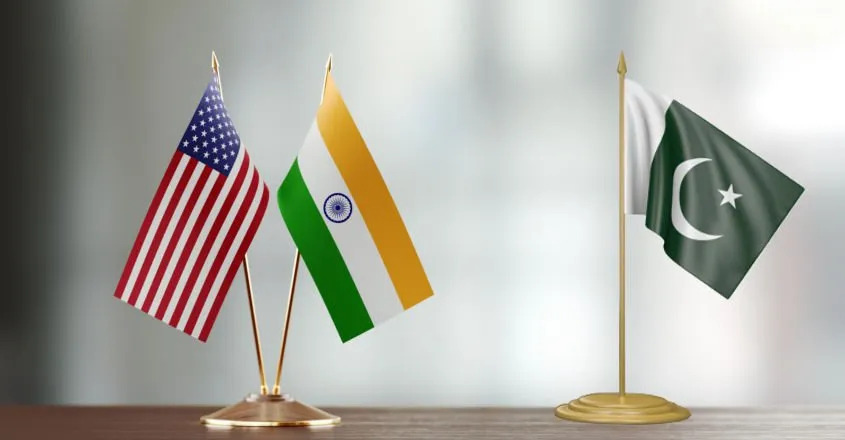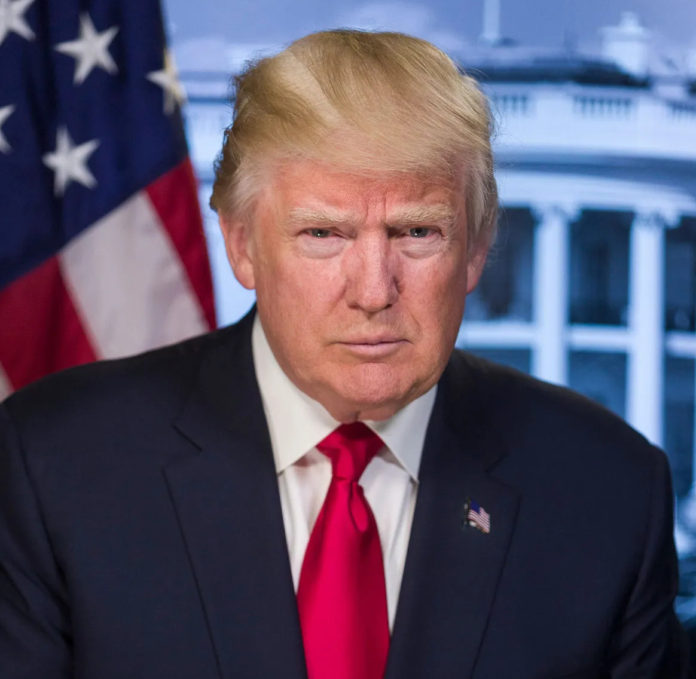Donald John Trump, the 45th President of United States and a renowned businessman politician of the Republican Party assumed office on January 20, 2016 after winning the US elections on November 08, 2016. Trump is significantly emphasizing the Sino–US relations free trade agreement under North American Free Trade Agreement (NAFTA) parallel to inter continental trade alliances under Trans-Pacific Partnership (TPP) or Trans Pacific Partnership Agreement (TPPA) an economic alliance of twelve states of Pacific Rim. A strong application of immigration laws, Mexican–US relations, committed to energy independence, climate change along with several other issues are on the main agenda of Trump. The real challenges to the newly elected President are portraying a worrisome picture in which the emerging threats of terrorism under Islamic State, instable Afghanistan, North Korean nuclear weapon status, conflict in Ukraine under expanding rift with Russia, economically emerging China, relations with European allies of NATO, the scope of nuclear deal with Iran and Middle Eastern Palestine–Israel conflict are the actual issues that demand attention.
The challenging task for the Trump administration is to define the South Asian policy. The Pak–US strategic relations parallel to Indo–Pak strategic partnership has created a strategic triangle between three nuclear powers. In the presence of toxic Indo–Pak bilateral relations, US involvement in the region is a factor which badly affects regional politics of South Asia. Trump became President at a time when Indian aggression in Kashmir and on the borders with Pakistan is high. The active Indian lobby will try to produce an American antipathy toward Pakistan which will be a difficult task for Trump, because the strategic bonds between New Delhi and Washington have provided confidence to India. The signing of civil nuclear deal with India and global effort to grant it Nuclear Supplier Group’s membership has disregarded Pakistan in the list of US priorities in South Asia. Washington’s inclination towards New Delhi has attached dichotic standards to America’s South Asian policy generally, and it has resulted in mistrust in Washington–Islamabad bilateral diplomatic values specifically.
Pakistan, a frontline state in the US–led war on terror has paid a huge price for its decision of joining the American initiated global war against terrorism. The economic crisis, political instability and social unrest have caused a great loss to the nation but Islamabad is still committed to bringing peace, security and stability in the region. Islamabad’s anti–terror operations have received critical appreciation from Washington whereas it should have received appreciable American support in regional and global politics. The US–India collaboration has further deteriorated the diplomatic relations between Islamabad and Washington.
Contrary to the nuclear politics of the Cold War between United States and Soviet Union, the South Asian nuclear order presents a different situation in which the nuclear weapons rival states share borders. The swelling nature of Indian nuclear capabilities is disturbing the South Asian regional balance and New Delhi’s offensive behaviour cemented in an anti–Pakistani aggression demands sincere American efforts instead of Indian–inclined US policies. New Delhi’s efforts to underestimate Islamabad’s potential of creating a balance in the region should propel Washington to understand regional dynamics of South Asian strategic culture. New Delhi’s hawkish behaviour is increasing in the region which has substantially upset its many neighbours. Therefore, the updated patterns of American foreign policy for South Asia influenced by Indian lobby can be disastrous for the region.

The strategic triangle between Washington–Islamabad–New Delhi laced with the unbalanced American or Indian oriented behaviour needs a revised version of American South Asian policy while keeping Pakistan on the main agenda. The realities of the nuclear world require a rationally balanced and strategically pragmatic role of members of the nuclear club towards nuclear weapons states beyond their club. Theoretically the acquisition of nuclear weapons strengthens the global as well as regional standing of states by redefining their foreign relations and altering position of states globally. The nuclear powers cautiously calculate their political moves, in this way, in regional and international politics. World politics in the presence of nuclear weapons arguably have a significant impact on international relations. States try to achieve nuclear capability, generally, to fulfil their security needs. The politics of nuclear era, in this way, has changed the traditional wisdom of international system. Relations between nuclear powers play a vital role in world politics, in the prism of America–Pakistan–India, the strategic triangle between three nuclear powers creates a complicated situation in which relations between members of the Nuclear Club (America) with non–members of Nuclear Club (India, Pakistan) require criteria based, universally applicable, and logically convincing treatment.
President Trump needs to address the question of South Asian strategic equilibrium which is gradually fracturing. American foreign policy under the new administration should seriously consider the Indo–Pak relations before designing any initiative for South Asia. The handling of Indo–Pak strategic competition under Trump necessarily will require departure of American foreign policy from its traditionally outdated patterns. An updated and revised US policy for South Asia, while ranking both India and Pakistan equally, will strengthen the strategic triangle based on bilateral formats of US–India and US–Pakistan. Trump’s focus on South Asian realities based on a comprehensive view of Indo–Pak history along with Indian escalation of the nuclear race, conventional asymmetrical balance between New Delhi and Pakistan can assist the new team of foreign policy decision makers in articulating South Asian initiatives with pragmatism. The rapidly changing strategic culture of South Asian regional politics is now greatly relying on President Trump’s policies. The journey of the 45th President has begun but what it will offer to Pakistan is easy to imagine considering the political slogans and attractive catchphrases of the Trump campaign that painted a blurred picture of undefined policies. Trump’s leadership and American bilateral relation with India, in the contemporary scenario, are forcing Pakistan to expect a balanced behaviour of Washington for South Asia. Therefore, the future of South Asia is greatly based on a reviewed pattern of American foreign policy under the Trump administration.





